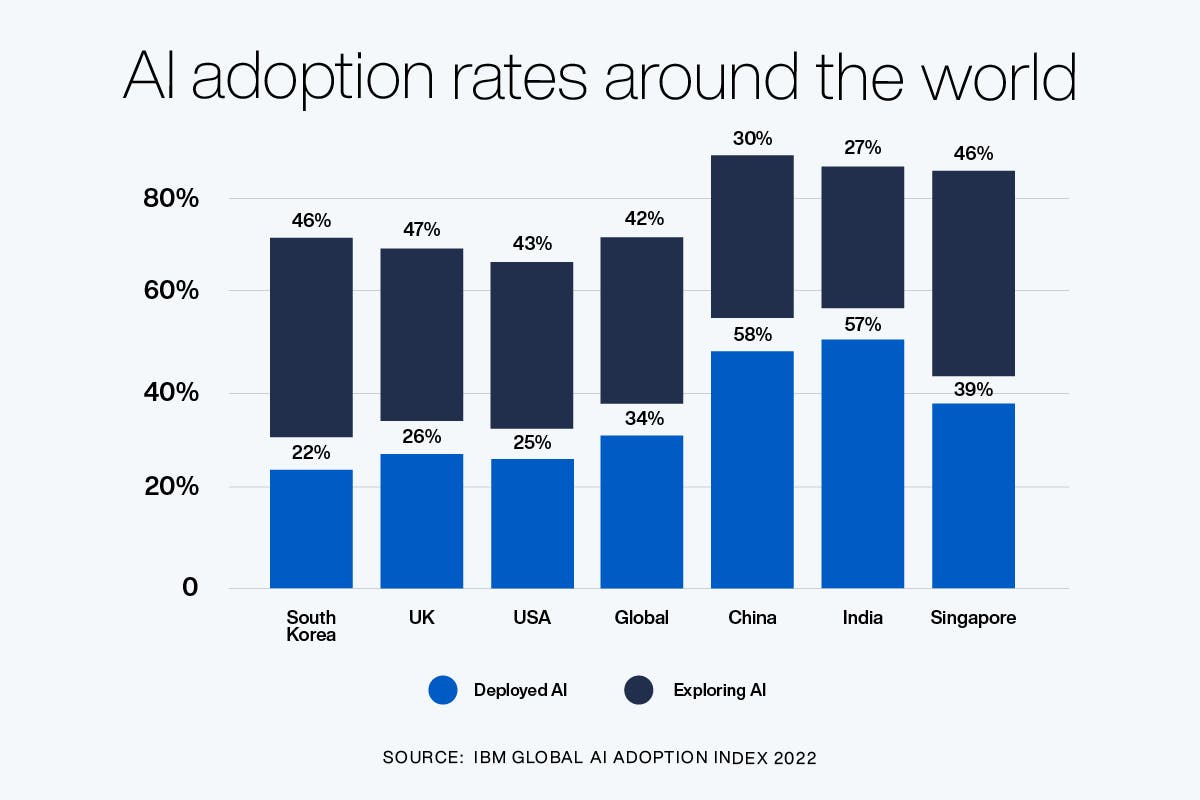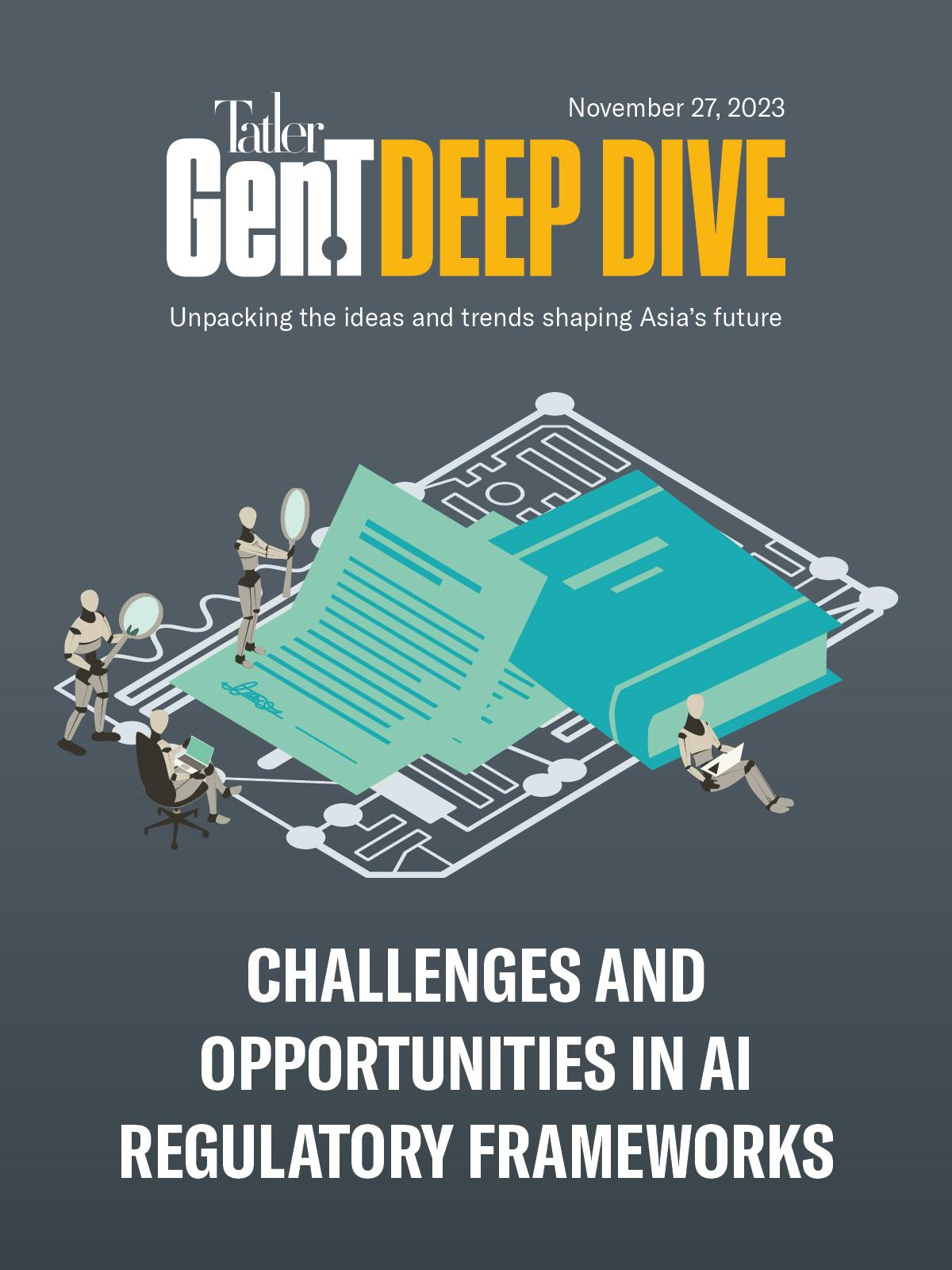Charting new paths to regulating AI
From tight control to open season, governments around the world are taking a range of approaches to AI regulation. Let’s take a Deep Dive.
🤖 The regulation of artificial intelligence is a complicated business, potentially involving privacy implications, training biases, disclosure that AI is being used, explainability of the process, copyright implications and more.
⚖️ Not everywhere has rules, but some places, like the European Union, are pretty strict about what you can do, while others like China are also tightening up.
🌏 Various supranational bodies are also trying to play a role in AI regulation.
BY THE NUMBERS

37 In 2016, a Stanford University study found that just one of 127 countries surveyed had passed an AI law. By 2022, that number had leapt to 37.
61% Of Americans polled in 2023 by Reuters and Ipsos, 61 percent think AI poses risks to the human race, while only 22 percent disagree.
2 According to the AI, Algorithmic, and Automation Incidents and Controversies Repository, the number of controversial incidents involving AI more than doubled between 2019 and 2021.
QUIZ
What percentage of Americans consider AI regulation important, according to a 2023 Fox News poll?
A. 56%
B. 76%
C. 96%
Scroll to the bottom for the answer.
DID YOU KNOW?

Many of the problems of regulation stem from so-called AI alignment, the ongoing challenge, caused by the complexity and opacity of systems, of making AI do what humans want it to.
THE EDIT
🏛️ No surprises. The world’s three biggest economies are all regulating AI to type: the US is letting the market lead, China is putting the state in charge and the EU is prioritising individual rights.
🐎 Whoa, Nelly. One challenge of AI regulation is the so-called pacing problem, whereby the technology evolves so fast that the law struggles to keep up, or at least to keep moving at the appropriate speed.
⚔️ Geroff, it’s mine. In many jurisdictions, another part of the challenge is deciding which branch of government gets to regulate it.
WATCH
AI regulation is necessary mainly because AI lies, according to Gary Marcus, psychologist, author and founder of machine learning companies Geometric Intelligence and Robust.AI.
THE FULL PICTURE

China leads the world in AI exploration, with several of the other most enthusiastic countries also located in Asia.
MAP
This interactive map indicates the state of AI regulation in jurisdictions around the globe.
KEY PLAYER
Sam Altman
As the on-again, off-again CEO of OpenAI, the company behind ChatGPT, Sam Altman is doing more than anyone else to shape the future of AI. The former CEO and Y Combinator president and (briefly) Reddit CEO, who co-founded OpenAI in 2015 and became its CEO in 2019, has long called for stricter regulation. His recent chaotic sacking and reinstatement as CEO highlighted governance issues at the company and heightened calls for the rules to be tightened up.

HONOUREE TO KNOW
Jennifer Zhang
Voice AI platform Wiz.AI, co-founded by Jennifer Zhang, delivers automated customer interactions in Asian languages using accents so accurate that 95 percent of users do not know they are talking to a machine. In 2022, it was named as a World Economic Forum Technology Pioneer and raised $30 million in a funding round. In 2023, Wiz.AI launched TalkGPT, a ChatGPT-powered solution for customer engagement campaigns.

ONE FINAL THING

These questions might all feel very novel, but concerns about AI regulation have been around for a long time. For example, pioneering mathematician and philosopher Norbert Wiener, the inventor of the term “cybernetics”, was writing about the subject as long ago as the 1940s.



